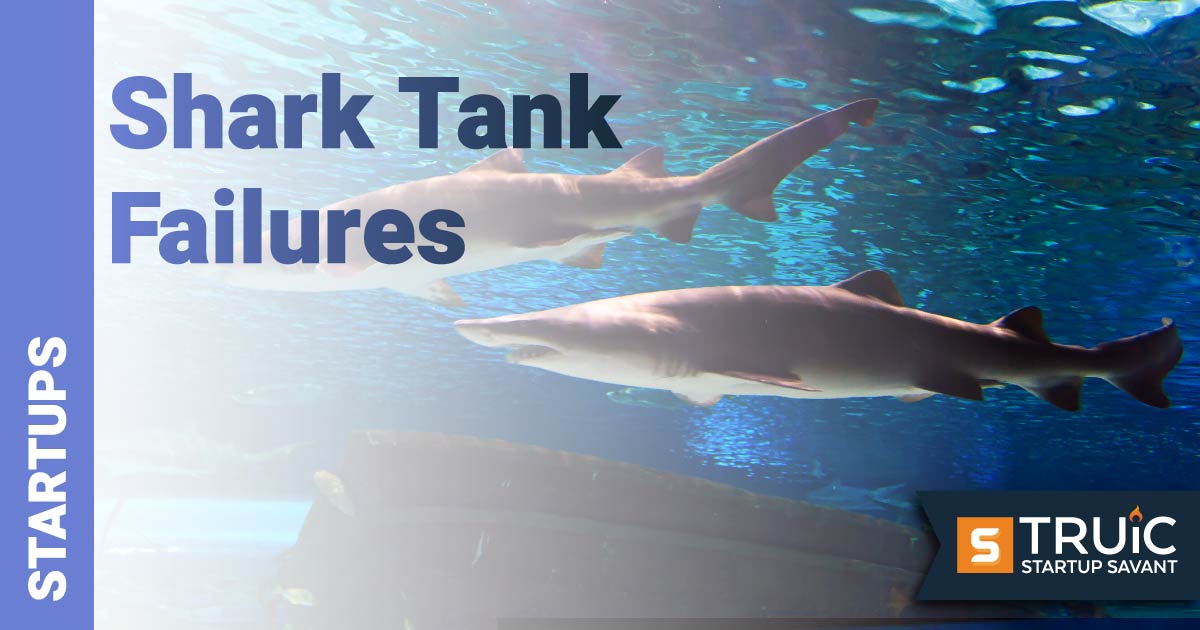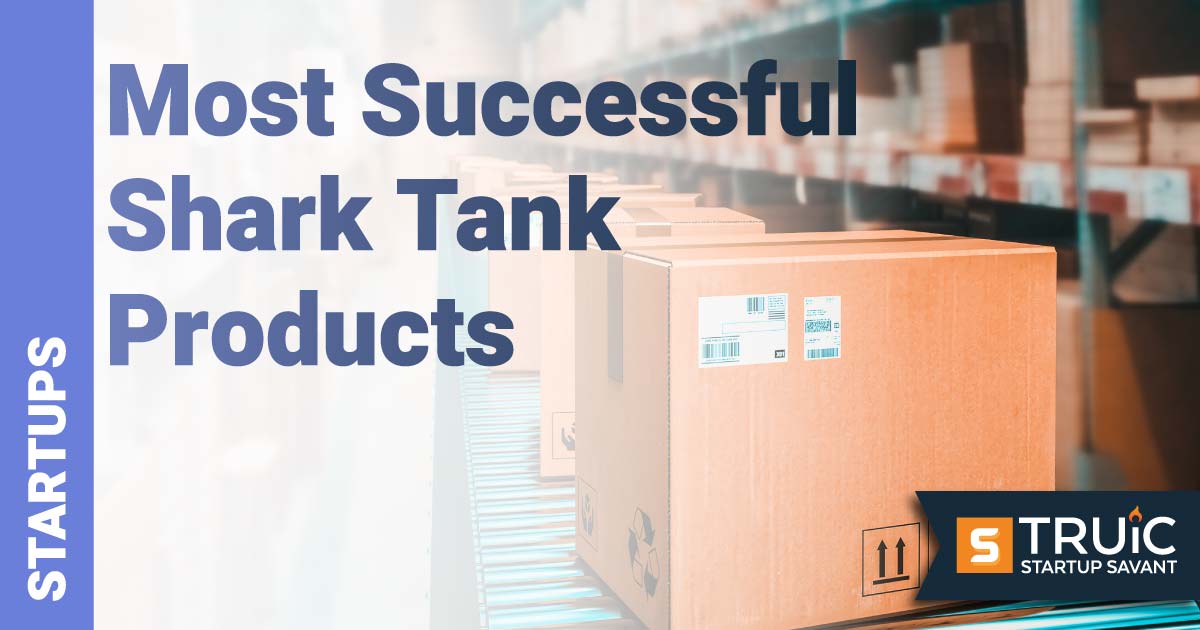7 Biggest Shark Tank Failures

Last Updated: By Michaela Dale
Shark Tank, the television show featuring entrepreneurs pitching their business ideas to famous investors, including Mark Cuban and Barbara Corcoran, boasts many successes from investments made on the show. From Bombas to Scrub Daddy, there are a litany of Shark Tank success stories.
However, not every deal on the wildly popular television show is a success. These are the 7 biggest Shark Tank failures and missed opportunities.
Shark Tank Failure Stories (And What to Learn From Them)
Shark Tank has seen a litany of creative pitches and business ideas by ambitious entrepreneurs, some going on to create impressive, disruptive companies. These stories are about the companies that failed their post-Shark Tank appearances, as well as the failures of the judges to spot a golden opportunity in front of them.
1. Sweet Ballz
Episode: Season 5, Episode 1
About the Company: Sweet Ballz are cake balls crafted for convenience stores. Founded by James McDonald and Cole Egger.
Investment: $250,000 for 25% equity from Mark Cuban and Barbara Corcoran
What Went Wrong: Unfortunately, the two founders got into a legal dispute after Cole Egger created a competing cake ball business, resulting in a restraining order and ultimately the end of the momentum created by the company’s Shark Tank appearance.
The Takeaway: Iron out co-founder conflicts early on. If you and your co-founder are not on the same page, it can spell disaster for your startup.
2. Toygaroo
Episode: Season 2, Episode 2
About the Company: Toygaroo billed itself as the “Netflix for Toys,” a platform where customers could rent toys each month. Founded by Phil Simy, Nikki Pope, Hutch Postik, Rony Mirzaians, and Young Chu.
Investment: $250,000 from Mark Cuban and Kevin O’Leary
What Went Wrong: As with many Shark Tank contestants, Toygaroo’s sales dramatically increased after their appearance on the show, with the company having little stock to support such a large uptick in sales. This, coupled with fluctuation in shipping prices as well as high toy prices, spelled disaster for Toygaroo despite the investment they received from the show.
The Takeaway: Having a strong understanding of the expenses required to operate your business is crucial to its success. The Toygaroo team was hopeful the Shark Tank appearance would spark a deal with toy maker Mattel; however, this was not the case.
3. Doorbot
Episode: Season 5, Episode 9
About the Company: Doorbot, now named Ring, is a smart doorbell founded by Jamie Siminoff. The company was acquired by Amazon for over $1 billion.
Investment: None
What Went Wrong: This was a failure on the part of the investors rather than the startup. Today, Ring (Doorbot) is a wildly successful company, however, during the Shark Tank appearance, founder Siminoff was offered $700,000 by Kevin O’Leary in exchange for 5% equity and 10% royalty that would later drop to 7% once the funding had been repaid.
The founder turned this offer down and, with a $5 million sales increase after the show, was able to grow the business to eventually take on over $200 million in funding.
The Takeaway: Knowing your non-negotiables and sticking with them can pay off in the long term if you have a great idea and the ability to execute your vision.
4. Body Jac
Episode: Season 1, Episode 5
About the Company: Body Jac is a fitness product designed to make push-ups easier. Founded by “Cactus” Jack Barringer.
Investment: $180,000 for 50% equity from Kevin Harrington and Barbara Corcoran
What Went Wrong: The story behind Body Jac’s demise is somewhat unclear. After receiving the funding for his company by losing 30 lbs, a part of the deal made during his Shark Tank appearance, “Cactus” Jack’s fitness product is no longer available for purchase. Investor Barbara Corcoran has publicly expressed regret for investing in the company.
5. The Bouqs
Episode: Season 5, Episode 27
About the Company: The Bouqs is a fresh flower delivery service disrupting the floral industry. Founded by John Tabis.
Investment: None
What Went Wrong: The Bouqs’ founder went on Shark Tank seeking $258,000 in exchange for 3% equity in his company. However, none of the investors were interested in investing in the flower company, some cited that the equity percentage was too low. This was a missed opportunity for the investors. The Bouqs went on to secure a seed round of $1.7 million and later secured further investment from Shark Tank judge Robert Herjavec after initially not investing in the company on the show.
The Takeaway: Don’t let “no’s” discourage you. Many successful startups and their founders face rejection. If you think your idea has the potential to disrupt an industry, keep going.
6. ShowNo Towels
Episode: Season 3, Episode 4
About the Company: ShowNo Towels are poncho-shaped towels for children to make changing out of bathing suits in public places easier for families. Founded by Shelly Ehler after struggling with the problem with her own kids.
Investment: $75,000 for 25% equity from Lori Greiner
What Went Wrong: While ShowNo Towels initially asked for a smaller investment and was offered more on the show, the investment did not materialize due to alleged complications between the founder and investor.
ShowNo Towels had two deals also not come to fruition with Disney and Franco Manufacturing, causing the company to fold.
The Takeaway: Ensuring a smooth collaboration between founders and investors is pivotal for a startup's success. The case of ShowNo Towels illustrates the importance of clear communication and agreement on the terms of investment.
7. Breathometer
Episode: Season 5, Episode 2
About the Company: Breathometer is a portable Breathalyzer that connects with an app, allowing consumers to track their blood alcohol levels. Founded by Charles Michael Yim.
Investment: $1 million for 30% equity from Kevin O’Leary, Lori Greiner, Mark Cuban, Daymond John, and Robert Herjavec
What Went Wrong: Despite receiving funding from all five of the Shark Tank investors or “Sharks,” the Breathometer ran into issues with both order fulfillment and the efficacy of the product. The results produced by the product were incorrect, prompting the Federal Trade Commission to order refunds for all Breathometers sold and barred the product from being sold.
The Takeaway: There are many stories of founders with products that don’t work as advertised. This is a huge misstep for founders and startups alike. Be upfront with your product claims and be proactive in ensuring its quality.


